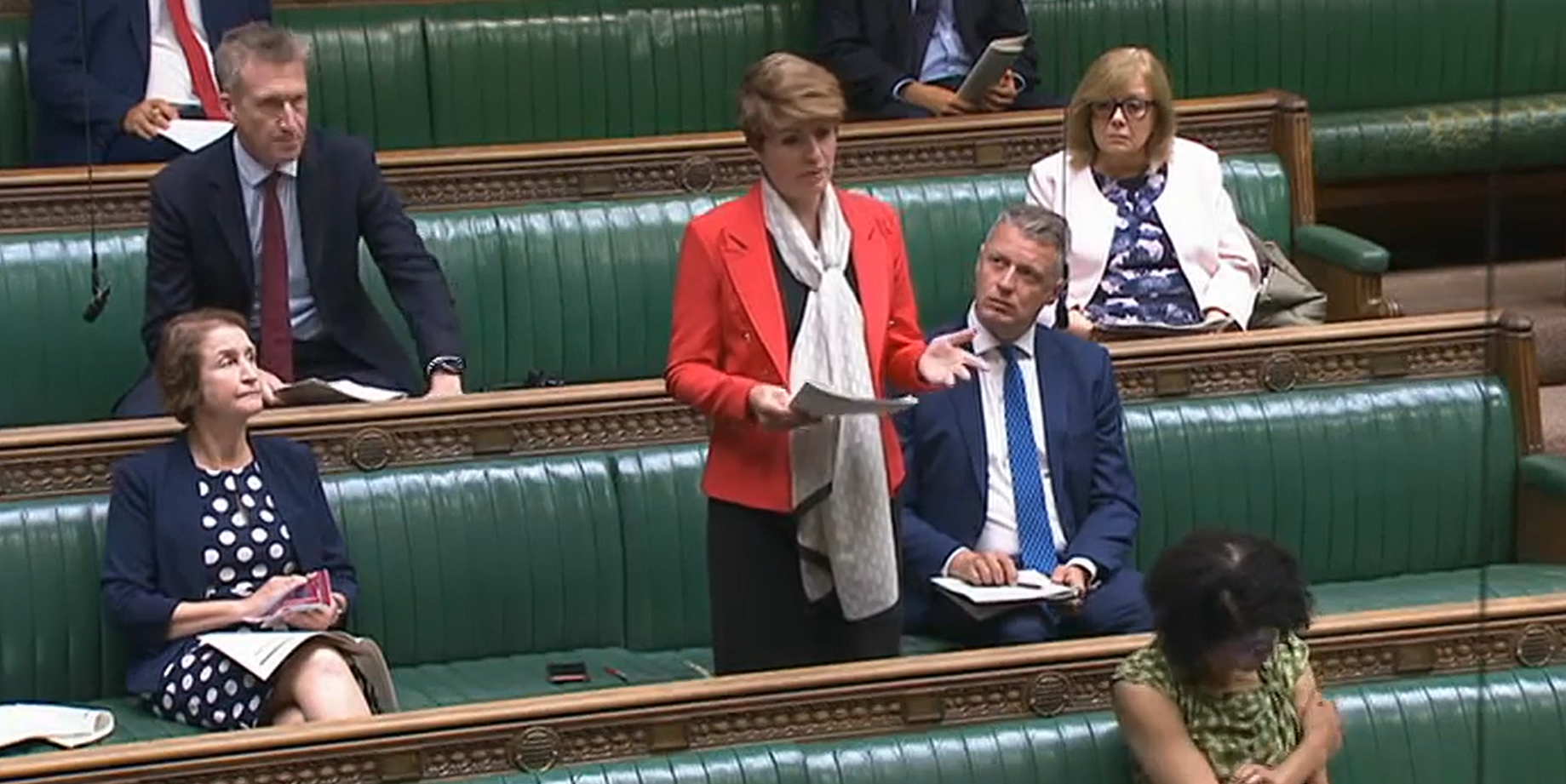
Campaigners want gynaecological conditions to be given greater priority by the NHS as women report increasing cancellations for procedures.
Ministers have been warned that elective gynaecological procedures are the “least likely to actually take place” and a “change in mindset” is required to give women’s health matters the attention they deserve.
Labour MP Emma Hardy, who co-chairs the all-party parliamentary group (APPG) on endometriosis, said she believes hospital appointments for gynaecological issues – for procedures or seeing specialists – are being cancelled more than other areas of medicine.

She said this is based on waiting list data, what she has heard from women and through her role on the endometriosis APPG.
Kath Sansom, founder of the Sling The Mesh campaign, said cancellations for women with mesh-related procedures have increased by “massive amounts” in recent months.
The Royal College of Obstetricians and Gynaecologists (RCOG) has said the number of women on waiting lists for gynaecological care doubled between April 2018 and April 2022.
Ms Hardy, MP for Kingston upon Hull West and Hessle, is to lead a Westminster Hall debate on waiting lists for gynaecological services on Wednesday.
She recently told the House of Commons that she has heard gynaecological appointments “are being cancelled more than any other operation” and for elective procedures, “if they’re gynaecological they’re the least likely to actually take place”.
Ms Hardy told the PA news agency: “All appointments are being cancelled, and there’s problems with elective appointments across the board, but gynaecological appointments do seem to be getting cancelled more.
It’s a really big emotional rollercoaster. To be all built up for the moment and then be let down at the last-minute is devastating on a mental health level for women— Kath Sansom
“It feels we have a problem in wider society that generally women’s health is not taken as seriously as other conditions, and we need to have a change in mindset, I think, across society, across Government, politics and across all the health services that it needs to be understood how gynaecological conditions like endometriosis and others have such a huge impact on women’s everyday life and how debilitating they are and they need to be taken more seriously.”
Ms Sansom, on mesh-related procedures, said: “We have seen increasing numbers of the actual surgeries cancelled.
“We’ve always seen this real problem of women – women wait months or even years to get an appointment to see a specialist who will take their mesh concerns seriously – and we’ve always seen cancellations of those consultation or scan appointments, we’re quite used to those.
“What we’re not used to seeing in such great numbers is the cancellations of the actual mesh removal surgeries, which are complex operations. And what we’ve been seeing is maybe the day before, maybe the week before, sometimes even on the actual day of the planned surgery – these women are sometimes gowned up ready to go – and the surgery is cancelled on the day.
“And we’re seeing a lot more of that. We’ve not seen these last-minute cancellations in the numbers that we’re seeing them recently.
“It’s a really big emotional rollercoaster. To be all built up for the moment and then be let down at the last-minute is devastating on a mental health level for women. And that’s what we’re seeing more of.”
The RCOG published a report in April which said waiting lists in gynaecology were growing faster than any other specialty before the pandemic.
RCOG president Dr Edward Morris said: “We know that cancellation of surgery and appointments often happens when there is a lack of available beds or theatre capacity, often due to staffing.
“Obstetricians and gynaecologists have told us they feel strongly that when the decision is made about which lists to cancel, gynaecology is often chosen because of the way the specialty is perceived, and the lack of priority it is given.”
Dr Morris said he wants greater investment in the NHS workforce and a change in the way the service prioritises surgery to give greater consideration to quality-of-life issues such as acute pain, incontinence and heavy menstrual bleeding.
A Department of Health and Social Care spokeswoman said: “We are working hard to increase capacity across the health service in order to bust the Covid backlogs, which we recognise have caused a great deal of hardship for those waiting for elective care.
“”We are investing a record £39 billion in health and care services over the next three years, alongside setting up surgical hubs and community diagnostic centres – over 90 of which are already open and have delivered over one million additional checks.”


.png?w=600)




